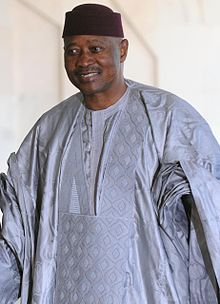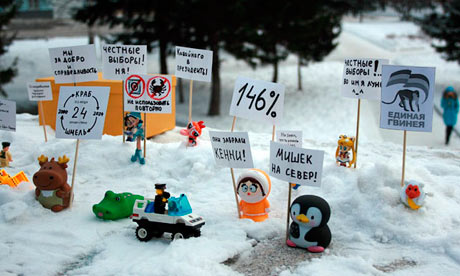 Meles Zenawi, prime minister of Ethiopia since 1995 has died. Meles is the first leader of Ethiopia to die in office (rather than being overthrown by force or murdered) since the death of Empress Zewditu in 1930 (and it is often felt that Zewditu was herself murdered to facilitate the accession of Tefari Makonnen, who took the name Haile Selassie as emperor). If Empress Zewditu was indeed murdered then the last Ethiopian ruler before Meles to die in office was Emperor Menelik in 1913, almost 100 years ago. I think one would have go back a long way to find a leader of Ethiopia who left office voluntarily or was removed by constitutional means, though the same is probably true of most monarchies (as Ethiopia was before 1974).
Meles Zenawi, prime minister of Ethiopia since 1995 has died. Meles is the first leader of Ethiopia to die in office (rather than being overthrown by force or murdered) since the death of Empress Zewditu in 1930 (and it is often felt that Zewditu was herself murdered to facilitate the accession of Tefari Makonnen, who took the name Haile Selassie as emperor). If Empress Zewditu was indeed murdered then the last Ethiopian ruler before Meles to die in office was Emperor Menelik in 1913, almost 100 years ago. I think one would have go back a long way to find a leader of Ethiopia who left office voluntarily or was removed by constitutional means, though the same is probably true of most monarchies (as Ethiopia was before 1974). Meles came to power after a long civil war that had pitted the military regime of Mengistu Haile Mariam against a variety of enemies. Meles led the Tigrayan People's Liberation Front, a group based in the northern province of Tigray, which had particularly suffered at the hands of Mengistu. The TPLF were allied to the Eritrean People's Liberation Front, a separatist movement in the coastal province of Eritrea. The EPLF had been fighting a longer war against both Mengistu's clique and before him Emperor Haile Selassie.
In power Meles and his were initially a breath of fresh air after the erratic Stalinism of the Mengistu regime. Eritrea was allowed to secede from Ethiopia and the TPLF was reconstituted as the Ethiopian People's Revolutionary Democratic Front, to broaden its base beyond the Tigray province. As a counter to the centralising tendencies of Mengistu, a federal constitution was adopted, with the various provinces allowed a considerable degree of autonomy. And in contrast to most African countries, Ethiopia adopted a parliamentary rather than presidential system of government.
However, things did not turn out as well as initially promised. Elections held under Meles proved to be a bit of a joke, with non-EPRDF prevented from campaigning properly and votes not being counted in a fair and transparent manner. When opposition activists protested against this in 2005 they were massacred and leading opposition politicians thrown in jail until they admitted that the violence had all been their fault. The press in Ethiopia remained subject to crippling censorship and the broadcast media resembles something from pre-1989 Eastern Europe in its fawning devotion to Meles and his pals. The new federalism of Ethiopia seemed just to be a mask for EPRDF dominance, with many in Ethiopia feeling that now the country was being run for the benefit of Meles' base in Tigray. The human rights situation remains abysmal, with journalists being arrested recently for reporting that Meles was a bit unwell.
Meles Zenawi also led his country into war with his erstwhile allies in Eritrea. This border conflict, which seems to have been initiated by the President Isias Afewerki, the neo-Stalinist leader of Eritrea, was eventually won by Ethiopia. However, the conflict claimed the lives of several hundred thousand people in fighting that recalled the First World War. Since then relations with Eritrea have remained poisonous, with each country's paranoid leadership accusing the other of plotting to overthrow it and accusing their domestic opposition of being in the pay of the national enemy. War is peace.
More successfully (for him), Meles made his country a firm ally of the United States of America. Post 11-9, he declared Ethiopia a junior partner in the war on terror, which meant that the USA supplied him with military and diplomatic support against Eritrea and allowed him to project Ethiopian power into neighbouring Somalia, by accepting his claims that this was some kind of battle against Islamist terrorists. The support of the USA and its friends also allowed Meles to shrug off any criticism from do-gooders about his human rights record and Ethiopia's crypto-dictatorial system of government.
And now he has gone. What will be interesting will be to see whether his passing allows some kind of opening up of Ethiopian politics and a transition to open electoral politics. The fear of many, however, will be that his authoritarian political system will now disintegrate in a messy and violent manner, plunging Ethiopia back into chaos and civil war.
Image source












